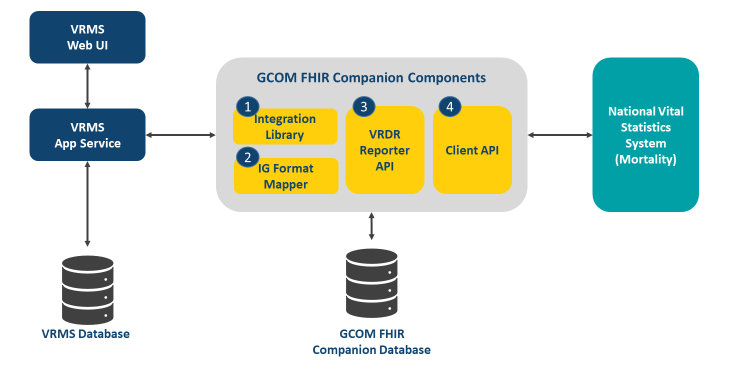Paving the Way for Vital Records Data Sharing with the New FHIR Standards
Paving the Way for Vital Records Data Sharing with the New FHIR Standards
The Fast Healthcare Interoperability Resources’ (FHIR) standard is a set of rules and specifications for exchanging electronic health care data using Application Programming Interfaces (APIs). APIs and the FHIR standard will enable health IT systems to communicate using a common language. It is a major leap forward in the way patient information used for processing birth and death certificates is shared. By making data sharing faster and more accurate, public health agencies can have real-time access to critical records for reporting vital records data to CDC in timely manner as well as for disease surveillance.
The adoption of FHIR standards across state vital records management systems will bring numerous benefits to public health officials around the nation, including improved accuracy and speed in the processing of birth and death certificates. In addition, data sharing will be more secure and require less manual intervention, helping public health officials improve their ability to track and respond to disease outbreaks.
Voyatek is proud to work with the CDC to help modernize vital records systems and support its initiatives to implement FHIR API functionality. We have been actively involved in testing and evaluating bi-directional APIs from state/local jurisdictions to the National Center for Health Statistics and back, as part of the Vital Records Data Modernization project. We have successfully designed and tested FHIR API functionality for our vital records clients, including New York City’s Bureau of Vital Statistics and Pennsylvania’s Bureau of Health Statistics and Registries—two of the nation’s largest-volume Vital Records jurisdictions. Our experience in this area has allowed us to develop a robust methodology and best practices for implementing the FHIR standards that we are now sharing with other states across the country.

Voyatek’s FHIR implementation based on the experience gained from NYC DOHMH and PA DOH.
As part of our commitment to the CDC, we are actively participating in various testing events designed to evaluate bi-directional API implementations. This work is crucial to ensure that the FHIR standards can be adopted across all states and jurisdictions in the US.
During the previous December 2022 FHIR testing event, Voyatek, along with our vital records clients, joined with other testing jurisdictions shared their testing event findings with other jurisdictions to help increase the overall participation in adopting new FHIR standards in Vital Records.
- Start participating in the NCHS testing events
- Response reading and analysis takes time, so be patient and analyze all API response received
- Focus future testing on the STEVE FHIR API which will be the API used in the production solution
- Use real data from the jurisdictions in future testing events
- Data entry error codes returned by the FHIR API need to be clearer for the data clerks to understand so they know how to fix the data
Voyatek participated in the February 27-28, 2023 testing event to help the CDC build the new FHIR standards for Vital Records to improve data sharing.
Ultimately, FHIR messaging will enable real-time submission of birth and death records to the CDC’s National Vital Statistic System and support ongoing and predictive public health surveillance. Going forward, it is important for states, local jurisdictions, and the CDC to collaborate in order to ensure that the FHIR standards are being properly implemented. This will help the US to take full advantage of the most common health technology data standard and make our data sharing processes more efficient, secure, and effective.
-Voyatek Leadership Team

